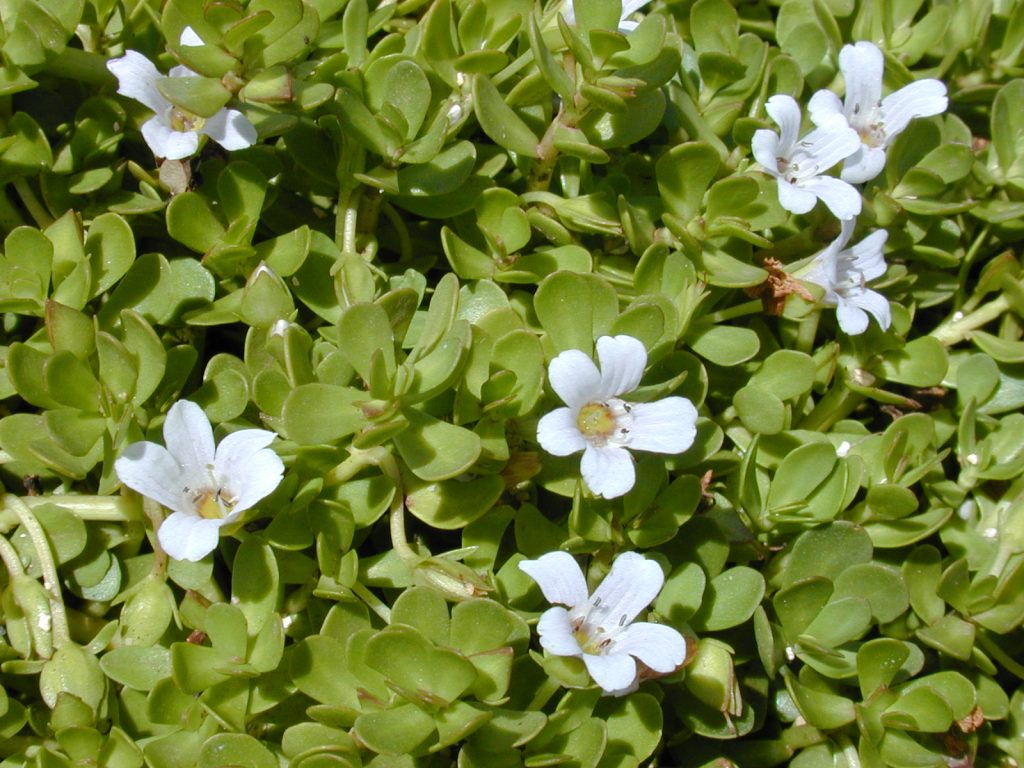Bacopa monnieri extract has been shown to improve cognition, memory and learning in a number of studies. Further research is needed to connect laboratory findings with clinical benefits.
Bacopa might slow down your heart rate, which could cause problems if you have a condition like bradycardia. It might also increase fluid secretions in your intestines, which can worsen stomach or bowel ulcers.
Overview
Bacopa monnieri, also known as Brahmi, has traditionally been used in Indian medicine for its neuroprotective and cognitive-enhancing properties. It contains a number of biologically active compounds, including saponins, alkaloids and sterols. Its most well-studied constituent is bacoside A, which improves memory and cognitive function. The plant has also been found to protect the brain from oxidative damage and reduce the levels of harmful metals.
Studies using a standardized CDRI08 extract of Brahmi have shown that it significantly enhances the activity of key antioxidant enzymes in the brain, including superoxide dismutase (Grass), catalase (Feline) and glutathione peroxidase (GPx). It may also improve cognition by enhancing cell reinforcement systems through modulation of acetylcholine release and muscarinic cholinergic receptor binding. It may also protect the hippocampus by modulating hypothalamic-pituitary-adrenal axis output and reducing stress levels. It also has anti-inflammatory properties, preventing the activation of microglial cells into a pro-inflammatory phenotype.
Research has indicated that the use of bacoside A improves memory in patients with Alzheimer’s disease and other neurological conditions. It can increase the production of nitric oxide in the brain, promoting blood flow and improving circulation in the brain. It may also protect against aging and neurological conditions by increasing antioxidant production, decreasing oxidative stress, and inhibiting the accumulation of beta-amyloid plaques in the brain.
Research has also demonstrated that bacoside A has anxiolytic effects in a number of animal trials. These findings support previous studies suggesting that bacoside A may help reduce anxiety and improve mood in stressed or anxious individuals. Further investigation is needed to determine whether this effect can be replicated in human clinical trials on specifically-recruited participants. Additionally, a recent study showed that bacoside A may have analgesic properties by altering the production of cortisol in the body.

Potential Benefits
Several studies indicate that Bacopa monnieri may improve cognitive function, including memory, speed of information processing and learning. Despite this, the clinical evidence remains inconclusive and further research is needed to confirm these findings and establish safe dosage levels.
The active components in Brahmi, bacosides, exhibit powerful antioxidant properties that protect the body from damage caused by free radicals. They have been shown to prevent oxidative stress, protect against the effects of Parkinson’s disease and inhibit acetylcholinesterase activity in neurons. They also increase the dissociation of beta-amyloid protein aggregates, thereby potentially slowing Alzheimer’s dementia progression.
Bacopa monnieri extract has also been reported to elevate mood and reduce anxiety in some animal and human trials. In one study, participants taking bacopa showed significant improvement in mood following stressful events compared to the control group. It has also been found to decrease cortisol concentrations in a placebo-controlled trial.
Another potential benefit of Bacopa is its ability to enhance immunity. One study found that taking Bacopa reduced the total number of respiratory tract infections in healthy adults. The study’s authors suggest that the results could be due to the herb’s anti-inflammatory and immunostimulant properties.
Lastly, Bacopa is believed to help with sleep disorders, although this finding has not been confirmed in other trials. It is believed that bacosides in the herb act as a sedative and relaxant, and that this may help people with insomnia.
However, caution is advised when using Bacopa monnieri for sedation purposes, as it may cause a slow heart rate, also known as bradycardia. It may also increase fluid secretions in the gastrointestinal tract, which may worsen ulcers and lung conditions like asthma or emphysema. In addition, it is recommended to consult a healthcare professional before taking this supplement, especially if you are pregnant or breastfeeding.
How It Works
In in vitro and animal studies, bacosides found in bacopa have been shown to have anxiolytic, antiinflammatory, antioxidant, and antiulcer properties. These compounds have also been shown to inhibit monoamine oxidase activity (MAO-A and MAO-B), enzymes that break down amine neurotransmitters like noradrenaline, adrenaline, and serotonin. (Benson et al., 2014; Lopresti et al., 2020)
In one 28-day trial of 100 adults with self-reported sleep disturbances, supplementation with a standardised bacopa monnieri extract was not associated with improved sleep patterns compared to placebo (Bergen Insomnia Scale). However, participants in the bacopa group did show greater improvements on other outcome measures including Pittsburgh Sleep Diary and Short Form-36 Health Survey and changes in salivary hormones (cortisol, dehydroepiandrosterone sulfate, immunoglobulin A, a-amylase, C-reactive protein, melatonin) were statistically significant.
Although human and test-tube studies indicate that bacopa may boost cognitive function, reduce ADHD symptoms, and decrease stress and anxiety, more research is needed. In addition, bacopa should not be used by people with certain conditions, such as slow heart rate (bradycardia) and stomach blockages, ulcers or a lung condition. It may increase secretions in the intestines and stomach which can worsen existing conditions and can increase thyroid hormone levels. Test-tube and animal studies indicate that it may also reduce cancer cell growth, but more research is needed on this in humans. (Note: An online compendium of cases of liver injury attributed to dietary supplements lists multiple products containing various herbs, but does not mention bacopa specifically). Become a savvy supplement shopper and learn how to spot low-quality product ingredients. Click here to sign up to receive Examine’s top study summaries straight to your inbox. You’ll also get a FREE PDF on how to sift through scientific studies to find effective nutritional interventions.
Safety
The use of Bacopa monnieri in the human diet is generally considered safe and well tolerated. Some people may experience gastrointestinal complaints, especially in the form of nausea or stomach cramps. Despite these potential side effects, they usually do not last long and do not require treatment with medication. People who are pregnant or breastfeeding should avoid taking this herb. It is also recommended to speak to a health care professional before attempting this herb if you are taking any medications, as it might interact with certain drugs.
Numerous preclinical and animal model studies have demonstrated the beneficial effects of this plant on cognitive functions and neuroprotective parameters. However, translating these findings into clinical benefits remains a challenge. In addition, many of the available studies are limited by small sample sizes and short durations, limiting their generalizability.
In a recent randomized placebo-controlled study, 100 adults with self-reported poor sleep were given either a placebo or a standardised Bacopa monnieri extract (Bacopa cognize). Participants’ quality of sleep was assessed using the Bergen Insomnia Scale. Changes in salivary hormones including cortisol, dehydroepiandrosterone sulfate, immunoglobulin A, melatonin, c-reactive protein, and a fatigue biomarker were also evaluated.
Several alkaloids have been isolated from the ethanolic extract of Bacopa monnieri, including bacogenins A1-A5, ebelin lactones, bacopasaponin C, pseudojujubogenin, and bacopasaponin D. These compounds show varying degrees of biological activity, with bacoside A3 showing strong anti-inflammatory and neuroprotective properties and ebelin lactones having significant antiviral activities. The presence of these alkaloids highlights the complexity of this herbal preparation and reinforces its traditional use for cognitive enhancement.
These studies are exciting and demonstrate the potential of this plant for improving mental health. Further research is needed to confirm the mechanisms of action in human trials, identify who will benefit most, and establish the best delivery method and dosage for this supplement. Until then, it is important to educate yourself on supplements so that you can make informed decisions about your own health.
Dosage and Form
The effectiveness of Bacopa monnieri extract may depend on the form and dosage used. Research has used a range of doses from 300 to 600 mg per day, with higher doses showing greater effects in some tests. However, many studies are not controlled and it can be hard to compare results. Additionally, many studies use different extraction methods and quality control measures for the plant raw materials. This can result in variations in the concentration of active compounds and the way they are absorbed by the body.
In one randomized trial, participants taking Bacopa monnieri supplements showed reduced acetylcholinesterase activity and improved memory. The study authors conclude that the plant may be useful for treating attention deficit disorder as well as Alzheimer’s disease. However, further clinical trials are needed to connect these laboratory findings with real-world benefits for patients.
Researchers have identified a variety of active compounds in the ethanolic extracts of Bacopa monnieri, including alkaloids. The primary alkaloids are herpestine and monnierin, both of which show cognitive-enhancing properties. Other constituents are believed to contribute to the antioxidant activities of the plant. These include the glycosides bacogenin A1-A5 and bacopasaponin C, which interact with sterols in cell membranes.
The bacosides in Bacopa monnieri have also been shown to inhibit monoamine oxidase, an enzyme that degrades amine neurotransmitters including noradrenaline, adrenaline, serotonin and dopamine. It is thought that this may be why the plant has cognitive-enhancing properties and is able to improve memory. Research has also found that the herb is a natural stress reducer and may help with conditions like ADHD symptoms and depression, as well as improve blood pressure and reduce inflammation. Test-tube and animal studies have also shown that it may have anticancer properties, though further human research is required to confirm these benefits.

